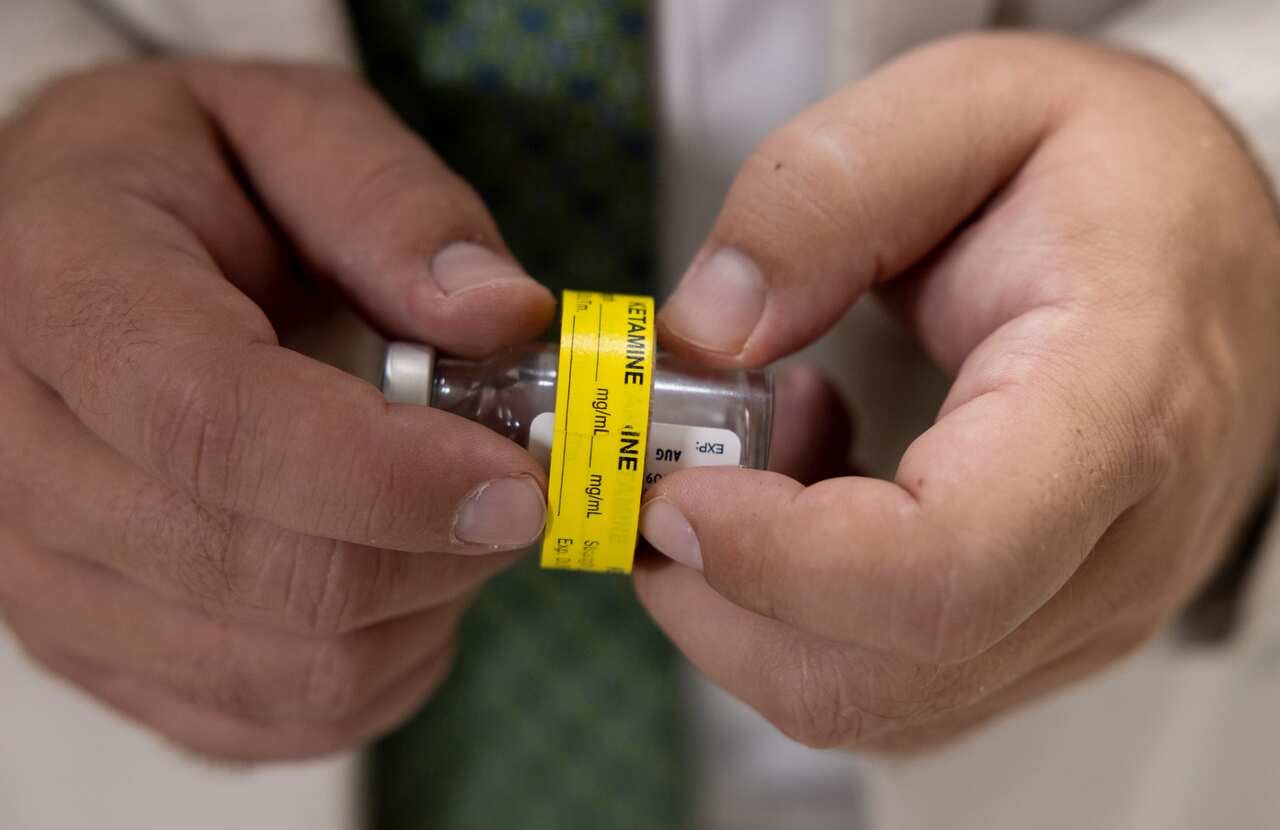KEY POINTS
- Ketamine is a promising new treatment for depression, say researchers.
- The groundbreaking research has opened up enormous opportunities for research into other uses of the drug.
- Allan Kelly, who has suffered from depression all his life, says ketamine saved him.
Allan Kelly, a 74-year-old retiree from NSW, says he has suffered from depression all his life.
Kelly said she has tried all sorts of treatments in an attempt to improve her condition, but has never been successful.
That was until she tried ketamine, a dissociative anesthetic that has some hallucinogenic effects and is commonly known as a party drug.
“I’ve really suffered from depression all my life, it comes from early childhood issues in families,” Kelly told SBS News. “And I can absolutely say that of all the things I’ve tried, whether it’s pharmacology, whether it’s CBT (cognitive behavioral therapy), whether it’s ACT (acceptance and commitment therapy), whether it’s mental health retreats or mindfulness, ketamine is the only thing that has saved me, along with my wife.”
A it was found to be effective for treatment-resistant depression, with a clinical trial testing the effectiveness of varying doses of the drug for the first time.
The study was conducted by the University of NSW and the Black Dog Institute and was funded by the Australian National Health and Medical Research Council.
University of NSW professor and lead researcher Colleen Loo said one in five people went into remission and a third showed a huge improvement in depression symptoms by the end of the trial.
“It’s transformative,” she said.
What did the ketamine trial find?
The drug works by rapidly promoting nerve cells in the brain to produce proteins that allow connections to be made with adjacent nerve cells, normalizing activity in networks involved in experiencing emotions.
During the trial, 179 people were given two injections of ketamine every week for a month in a clinic where they were monitored for two hours as the sedative effects wore off.
Loo said the treatment has shown immense benefits for people who have tried other treatments unsuccessfully.
“It’s not a miracle cure. No treatment works for every single person, but I’d say most people reap significant benefits from it.”
Trial participants were given a flexible dosage, about half a milligram to one milligram of ketamine per kilogram of weight, which was eight to ten times less than what would be used at parties.
One in five participants achieved total remission, while one third had at least a 50% improvement in symptoms.
University of Otago professor Paul Glue reiterated the study was aware that ketamine is an addictive party drug, but said the trial found no cases of people craving it.
The study excluded people with a history of substance abuse.
Ketamine may prove to be a treatment of last resort for people living with depression, say the researchers. Source: Getty / The Washington Post
How much do ketamine treatments cost?
While ketamine itself is affordable, costing around $5 for off-label use in Australia, the researchers admitted that the potential cost barriers lay in the associated health care.
Loo said costs from being in a medically monitored setting for a couple of hours for safety reasons could run as high as $350 for patients.
“I don’t see it as something people do in their office or in general clinics,” she said.
“It has to be specialized treatment with people with particular expertise.”
The use of ketamine would also be a measure of last resort when all other treatments have failed.
Most patients would need to dose ketamine while the episode of depression was present, which can range from several months to years.
Allan Kelly, who has said he has suffered from depression all his life, said ketamine “is the only thing that has saved me.” Source: Provided / Alan Kelly
The groundbreaking research has opened up huge opportunities for research into other uses of the drug, including anxiety and social phobias.
“It’s a very powerful treatment and done right. It’s an amazing treatment that has been transformative for a lot of people,” Loo said.
While the trial was successful, there are side effects that occur after undergoing the treatment.
“Within about five minutes of being injected, people report feeling dissociated or spaced out; people may feel sleepy; lightheaded; skin may feel numb or tingly; and people may feel dizzy,” Glue said.
“This typically peaks within about 15 minutes of an injection.
“It has to be done in the clinic, and you don’t want people moving around for an hour or two afterward.”
The researchers say they will soon look into larger studies of generic ketamine over longer periods and refine monitoring of the treatment’s safety.
– With reporting by Ciara Hain of SBS News and the Australian Associated Press.

